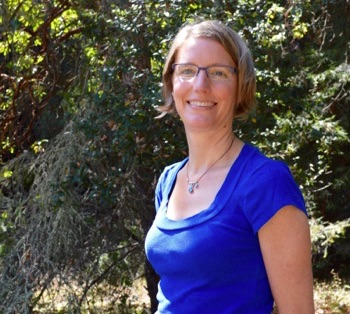Campus News
Regina Langhout honored for advocacy on behalf of those at risk of deportation
Regina Langhout, a professor of psychology at the University of California, Santa Cruz, is being recognized for her leadership in community psychology on behalf of people at risk of deportation.

Regina Langhout, a professor of psychology at the University of California, Santa Cruz, is being recognized for her leadership in community psychology on behalf of people at risk of deportation.
Langhout took the lead drafting a recent policy statement on deportation that called for changes to U.S. policy. The statement, based on a review of the effects of three decades of U.S. immigration policy on individuals, families, and communities, outlined the negative psychosocial and economic impacts of deportation. The brief was issued by the Society for Community Research and Action (SCRA) and published in the American Journal of Community Psychology.
In recognition of her leadership, Langhout will receive the 2019 Special Contributions to Community Psychology Award from the SCRA, Division 27 of the American Psychological Association. The award will be presented in June during the Biennial Conference on Community Research and Action, which takes place in Chicago.
The Society recognized Langhout “for her courageous leadership and exemplary action on behalf of individuals, families, and communities at risk of deportation and family separation. Her actions have had local and national impacts.”
Following the publication of the policy statement, Langhout reached out to local immigration attorneys, various bar associations, elected officials, immigrant rights advocacy groups, and researchers, using media and social media to spread the word. She also authored an op-ed for the Santa Cruz Sentinel about how communities can support immigrants who lack authorization, and she was interviewed by local NPR affiliate KAZU Radio. Media coverage led to several invitations to address local community groups.
The Society also recognized UC Santa Cruz alumna Erin Ellison (Ph.D. ’17, psychology) with its 2019 SCRA Emory L. Cowen Award for the Promotion of Wellness. In her dissertation, “Collaborative Competence and Relational Praxis Among Community Organizers: The Reproduction of, and Resistance to, Systems of Oppression,” Ellison looked at union organizing as a means of addressing oppression, with a focus on how building social support and group cohesion contributes to making socially just change. Ellison, who is now an assistant professor of psychology at Sacramento State University, maintains that organizers must recognize racism, classism, and sexism and their roles reproducing it to foster truly empowering coalitions. Langhout served as chair of Ellison’s dissertation committee. The Cowen Award will also be presented in Chicago.